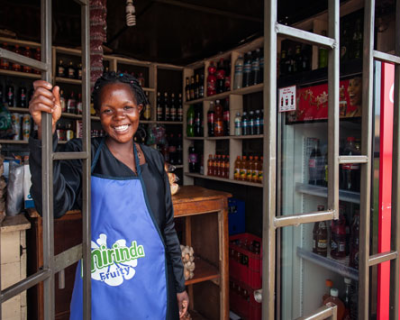Branch
Select your branch
An Interview with United Nations Capital Development Fund (Local Finance Initiative)
“At UNCDF, we are the believers of de
mand driven projects and innovations, and we always think from a market perspective.”
Malimu Museru
Investment Officer
“Every challenge in life is an opportunity. Entrepreneurs are not bo
rn as such, but these are people who learnt to stay focused on their goals and the challenges they wanted to address.”
Imanuel W. Muro
Senior Finance Specialist
Local Finance Initiative (LFI) has been set-up by the United Nations Capital Development Fund (UNCDF) to mobilize funds in local economies to help both the public and the private sector prosper. In Tanzania, the main priorities for UNCDF are:
- Value-addition projects targeting agro-processing and agriculture.
- Rural electrification and energy projects including hydro, solar, biomass and national grid expansion projects.
- Public infrastructure development projects.
LFI provides financial support, technical assistance, help with feasibility studies and advice on legal matters to support local initiatives. UNCDF helps make the projects bankable such that the applicants can get 70% of funding from bank-loans and cover about 10% with their private funds. The UNCDF then provides the remaining 20% of the funds in most cases. Mr. Museru and Mr. Muro shared the following insights on the role of solar-power in Tanzanian economic development with us.
What are the main issues tackled with help from LFI?
LFI is a commercial initiative focused on creating innovative partnerships which maximise the use of limited government resources by mobilizing funding and stimulating the private sector. We support projects based on their commercial viability and sustainability.
Agriculture is a major industry in Tanzania. However, adverse weather could lead to a high level of uncertainty in farmers’ income and the availability of agricultural produce. Changes in weather patterns could also impact the provision of electricity in areas powered by hydro power plants. Thus, a number of projects endorsed by the LFI are aimed at tackling volatility in agro-product supplies, prices, farmers’ incomes and electricity supply.
Do LFI grants often receive applications for supporting solar-based products? Are solar-based lighting and products of high demand amongst the populace?
Local organizations like Rural Energy Association (REA) and Tanzania Renewable Energy Association (TAREA) have done a great job in raising awareness of solar-products, resulting in about 80-90% of the local population being educated about the benefits of such products. The government prioritizes rural electrification as a means to tackle poverty, and solar-based electrification has gained great momentum since 2015.
Solar-pumps are in very high demand for irrigation purposes in many rural areas. People are aware of such technologies and are willing to invest in it. Solar water-heaters would be of great demand in the forests and national parks. Isolated islands and highlands as well seek solar-powered gadgets for consumptive purposes. Besides that rural electrification is another obvious market for solar based products and many national and multi-national companies are already doing great business in these sectors. We recently set-up a 100–150 kW plant in a rural community with about 1000 households. As the community is only utilising the power for consumptive purposes, there is excess power available which is not being used for productive purposes. There is a clear unaddressed challenge of optimizing power utilization across Tanzania. Project proposals geared towards promoting efficient power utilization across the nation are expected to gain traction and promote economic development in the coming future.
Are rural areas the only markets for solar products according to your experience or are urban populations adopting solar-power technologies too?
For the sunflower sector, solar-pumps for irrigation would indeed be the most logical and economical solution. We would like to partner with solar companies to make this technology available in rural areas. Novel technologies with affordable prices are fundamental for developing new industries in this country.
For example, Tanzania is second to Ethiopia in livestock population and, hence, has a huge potential for providing milk and other dairy products. Milk production is currently scattered in remote and rural locations, and connecting milk processing farms on the national electricity grid is a big challenge. If we could devise economical off-grid solar-powered refrigeration solutions, a new industry of quality dairy products could be set up! At TechnoServe, we work closely with developers of state-of-the-art, impactful technologies to ensure the students enrolled in our STRYDE program are prepared to work at the forefront of different industries.
Through us, students from the University of Cambridge, what message would you like to send to the University in order to be able to contribute to your work?
Most of our work focus on making existing ideas bankable by providing technical assistance and fostering fruitful partnerships between various organizations. We could make use of EPRG’s knowledge and expertise on studying markets and doing feasibility studies for various projects. We are happy to engage in dialogues with EPRG to develop internship projects for students to get a feel of working with UNCDF.
(L-R) Mr. Malimu Museru (UNCDF), Mr. Imanuel Muro (UNCDF), Arfa Karani, Benjamin Droguet



